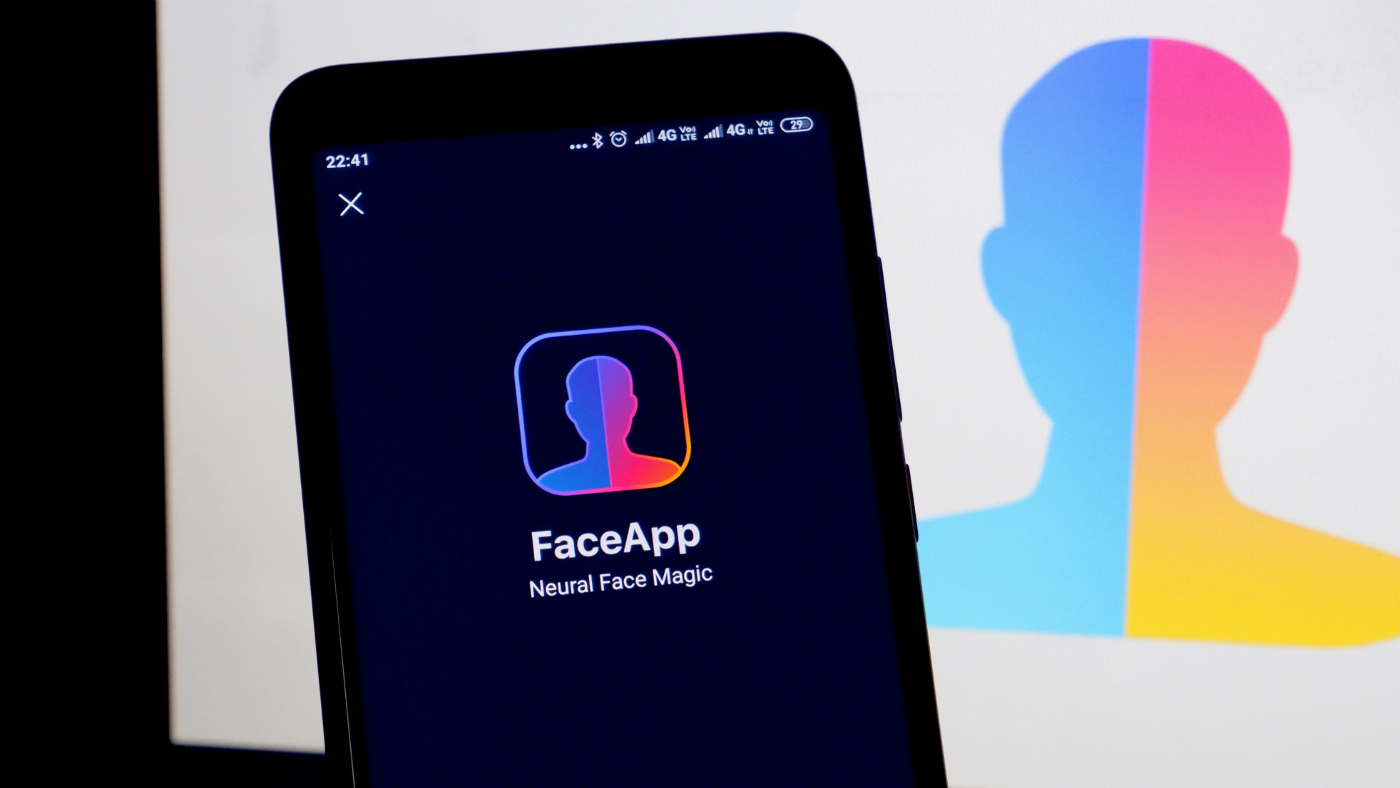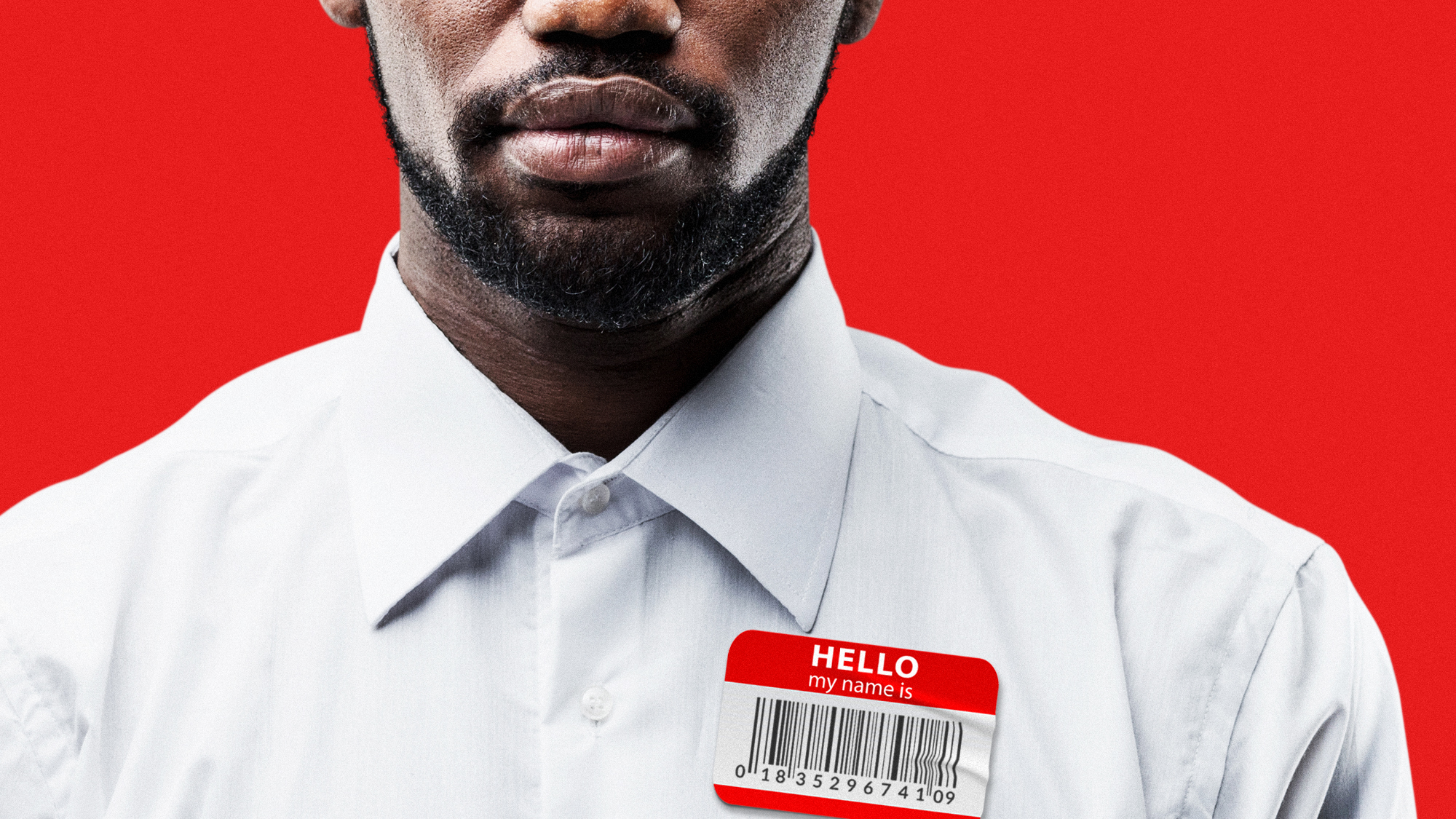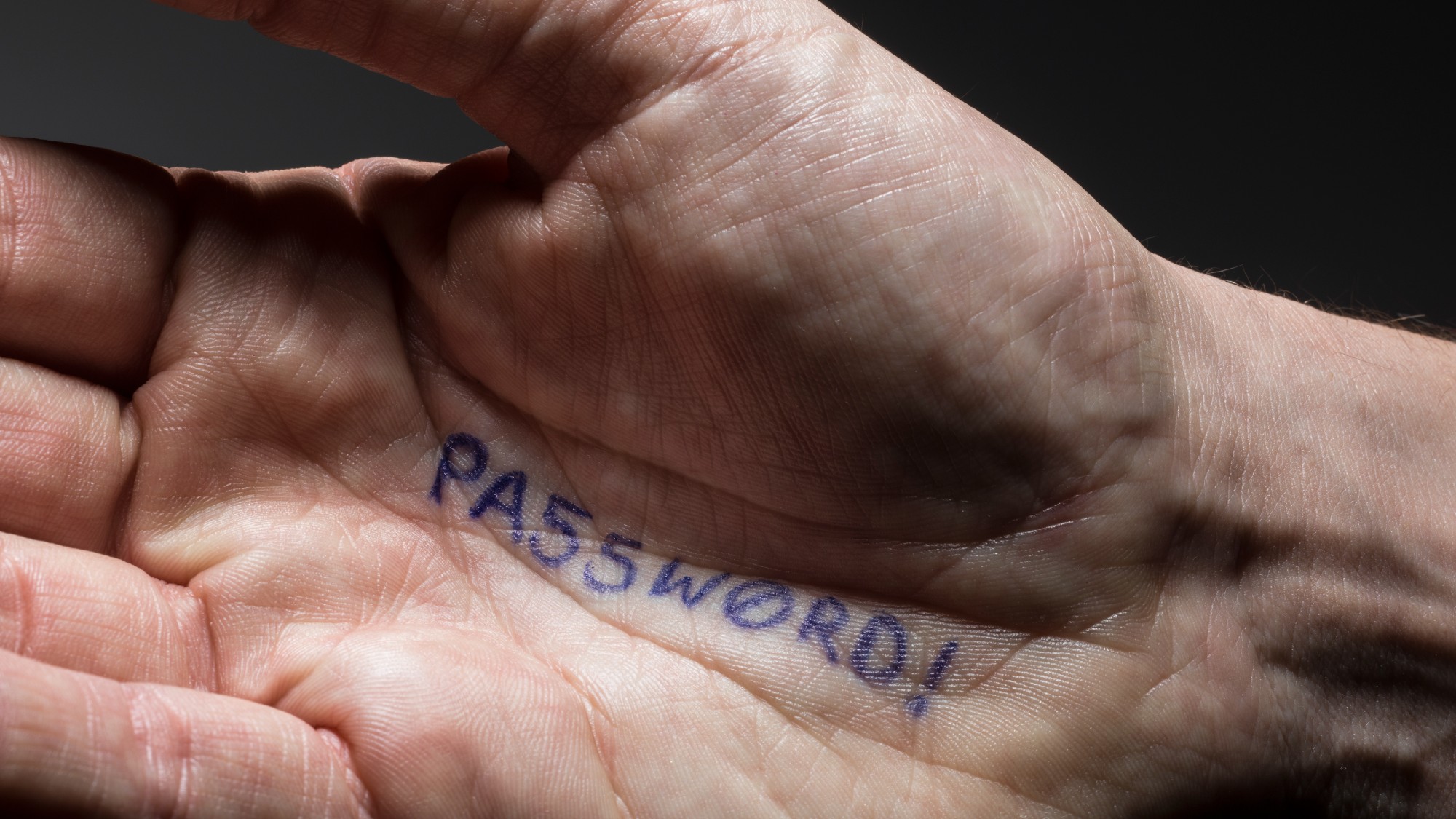Why everyone’s talking about FaceApp
The app’s alleged ties to Russian intelligence have triggered calls for FBI investigation - but are the fears justified?

A free daily email with the biggest news stories of the day – and the best features from TheWeek.com
You are now subscribed
Your newsletter sign-up was successful
Viral photo-altering app FaceApp is at the centre of a massive data privacy row amid claims that users’ personal information may be shared with Russian intelligence agencies.
First launched on iOS and Android in early 2017, the Russian-created app generates highly realistic transformations of faces in photographs, changing the subject’s hair colour, eye colour or gender, among other features. Users can also find out how they’ll look when they get older, with a surge in celebrities using this aging filter triggering a new online trend.
Thousands of people have posted “aged” selfies of themselves on social media in recent weeks, using the hashtag #faceappchallenge. Forbes reports that FaceApp has been downloaded from the Google Play store by more than 100 million people and is the top-ranked app on the iOS App Store in 121 countries.
The Week
Escape your echo chamber. Get the facts behind the news, plus analysis from multiple perspectives.

Sign up for The Week's Free Newsletters
From our morning news briefing to a weekly Good News Newsletter, get the best of The Week delivered directly to your inbox.
From our morning news briefing to a weekly Good News Newsletter, get the best of The Week delivered directly to your inbox.
But some commentators are warning that the company behind the viral trend could be an agent of the Kremlin. Critics claim that FaceApp can use uploaded pictures however and for as long it wants, and possibly even for Russian intelligence gathering purposes.
As these fears spread, US Senate minority leader Chuck Schumer this week said it was “deeply troubling” that the personal data of US citizens may be being used by “hostile foreign power”, and called for an FBI investigation into the app, reports the BBC.
What has happened?
FaceApp was created by Russian company Wireless Lab in 2017, and quickly went viral with its “hot mode” filter, designed to make users look more attractive. However, the app got unwanted publicity after users noticed that the filter tended to lighten the skin of black people and other ethnic minorities, leading to accusations of racism.
A free daily email with the biggest news stories of the day – and the best features from TheWeek.com
Following a lull, FaceApp has “hit the headlines again because of how realistic the technology has become”, The Daily Telegraph reports. According to the newspaper, the app uses neural networks to “map people’s faces and generate incredibly realistic images of what they will look like in the distant future”. Neural networks are a branch of artificial intelligence modelled after the human brain and are designed to learn from patterns.
Belfast Live notes that the aged selfies challenge has “proved so popular that even celebrities such as Gordon Ramsay, Sam Smith and Drake are getting involved”.
But this popularity has also led to concerns over potential security issues, with some media outlets highlighting the app’s small print as evidence of nefarious usage of its users’ data. According to The Times, this text “grants the developer extensive rights over users’ photos” and states that information collected may be stored and processed in “any country” in which FaceApp or its affiliates maintain facilities.
Financial information site MarketWatch suggests that users’ photos ���could be used overseas, including [in] Russia, whose government has been accused of interfering with the 2016 US presidential election”.
Meanwhile, The Times says that a larger tech company in Russia is alleged to have been supporting FaceApp developer Wireless Lab since last year. This larger firm, Skolkovo, claims to have been allocated a total of 2.5bn roubles (£32m) of Russian government funding - prompting fears that the Kremlin may be using FaceApp data for intelligence purposes.
What is the response to the claims?
The developers of FaceApp deny all the allegations against them, insisting the app only uploads photos that users have specifically selected for editing.
TechCrunch confirms that security tests have not found any evidence that the app uploads a user’s entire camera roll, as was feared.
The Russian firm also claims that images are deleted from its servers “within 48 hours from the upload date”, and insists that no user data is “transferred to Russia”, with the company instead using Google Cloud and Amazon Web Services for storage.
Most importantly, the app insists it does not sell or share any user data with any third parties.
A number of news outlets have criticised those behind the allegations against FaceApp, noting that the app’s Russian roots do not automatically make it shady.
“The panic about FaceApp’s old-person filter isn’t wrong, exactly,” says Vox. “It’s just tinged with xenophobia and devoid of context.”
CNN suggests that fears over the app “came from stitching together scary sounding but unfortunately not uncommon wording in the app’s terms of service”, along with an “unverified - and now deleted - claim from a developer on Twitter about the app ‘uploading all your photos’”.
The “simple fact that the company is based in St Petersburg, Russia” is prompting undue concern over its legitimacy, the news broadcaster concludes.
The Sydney Morning Herald adds that “counter to what many alarmist tweets might have you think, being Russian doesn’t automatically make it a spy app”, while Vice News notes that althought the “fact remains we have no idea how FaceApp is using this data”, we also “don’t know how lots of other apps are using our data”.
What happens next?
Despite the growing accusations of anti-Russian prejudice, the rhetoric against Wireless Lab was ramped up on Wednesday, when US Senate Minority Leader Chuck Schumer called on the FBI and Federal Trade Commission to investigate the data-collecting mechanisms of FaceApp, citing concerns that “personal data uploaded by millions of Americans onto FaceApp may be finding its way into the hands of the Russian government”.
“It would be deeply troubling if the sensitive personal information of US citizens was provided to a hostile foreign power actively engaged in cyber hostilities against the United States,” he added.
But for the most part, regulatory bodies have been hesitant to commit to any investigations specifically targetting the Russian developer.
The UK’s Information Commissioner’s Office (ICO) this week told the BBC that it was “aware of stories raising concerns about FaceApp” and would be “considering them”.
However, instead of taking aim at Wireless Lab or the Russian government, the body advised people signing up to “any app” to “check what will happen to their personal information and not to provide any personal details until they are clear about how they will be used”.
CNN agrees that FaceApp’s practices are nothing out of the ordinary when it comes to the use and storage of user data, and argues that the row is emblematic of a wider problem in the tech industry.
“The moment we hear about a flashy new service that can make our selfies look older, or match them with a famous painting, we are quick to throw caution to the wind and hand over the photo of our face, without knowing for sure where it’s stored or what it may be used for,” the broadcaster says.
“Tech companies certainly deserve criticism for their data privacy practices, but so do we.”
-
 Bad Bunny’s Super Bowl: A win for unity
Bad Bunny’s Super Bowl: A win for unityFeature The global superstar's halftime show was a celebration for everyone to enjoy
-
 Book reviews: ‘Bonfire of the Murdochs’ and ‘The Typewriter and the Guillotine’
Book reviews: ‘Bonfire of the Murdochs’ and ‘The Typewriter and the Guillotine’Feature New insights into the Murdoch family’s turmoil and a renowned journalist’s time in pre-World War II Paris
-
 Witkoff and Kushner tackle Ukraine, Iran in Geneva
Witkoff and Kushner tackle Ukraine, Iran in GenevaSpeed Read Steve Witkoff and Jared Kushner held negotiations aimed at securing a nuclear deal with Iran and an end to Russia’s war in Ukraine
-
 How digital ID cards work around the world
How digital ID cards work around the worldThe Explainer Many countries use electronic ID to streamline access to services despite concern by civil rights groups they ‘shift the balance of power towards the state’
-
 Why passkeys are the next frontier in digital security
Why passkeys are the next frontier in digital securityThe Explainer A disruptive new technology promises to put passwords to bed forever — but not yet
-
 John Oliver goes to 'creepy' lengths to persuade Congress to enact online privacy laws
John Oliver goes to 'creepy' lengths to persuade Congress to enact online privacy lawsSpeed Read
-
 The seven new cars most vulnerable to keyless theft
The seven new cars most vulnerable to keyless theftIn Depth Study finds only four of the 11 vehicles tested can withstand ‘relay’ attack